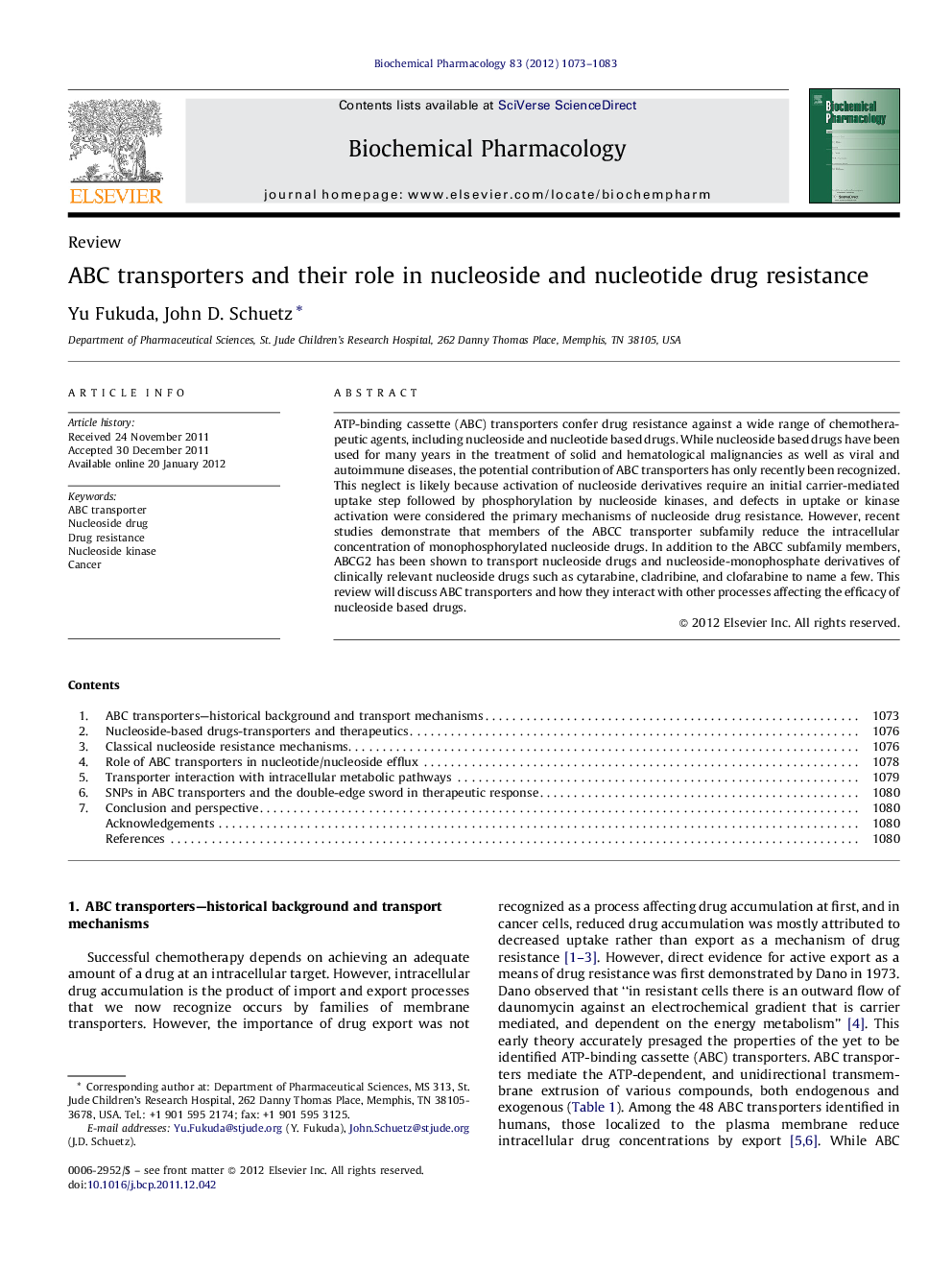| Article ID | Journal | Published Year | Pages | File Type |
|---|---|---|---|---|
| 2512912 | Biochemical Pharmacology | 2012 | 11 Pages |
ATP-binding cassette (ABC) transporters confer drug resistance against a wide range of chemotherapeutic agents, including nucleoside and nucleotide based drugs. While nucleoside based drugs have been used for many years in the treatment of solid and hematological malignancies as well as viral and autoimmune diseases, the potential contribution of ABC transporters has only recently been recognized. This neglect is likely because activation of nucleoside derivatives require an initial carrier-mediated uptake step followed by phosphorylation by nucleoside kinases, and defects in uptake or kinase activation were considered the primary mechanisms of nucleoside drug resistance. However, recent studies demonstrate that members of the ABCC transporter subfamily reduce the intracellular concentration of monophosphorylated nucleoside drugs. In addition to the ABCC subfamily members, ABCG2 has been shown to transport nucleoside drugs and nucleoside-monophosphate derivatives of clinically relevant nucleoside drugs such as cytarabine, cladribine, and clofarabine to name a few. This review will discuss ABC transporters and how they interact with other processes affecting the efficacy of nucleoside based drugs.
Graphical abstractFigure optionsDownload full-size imageDownload as PowerPoint slide
